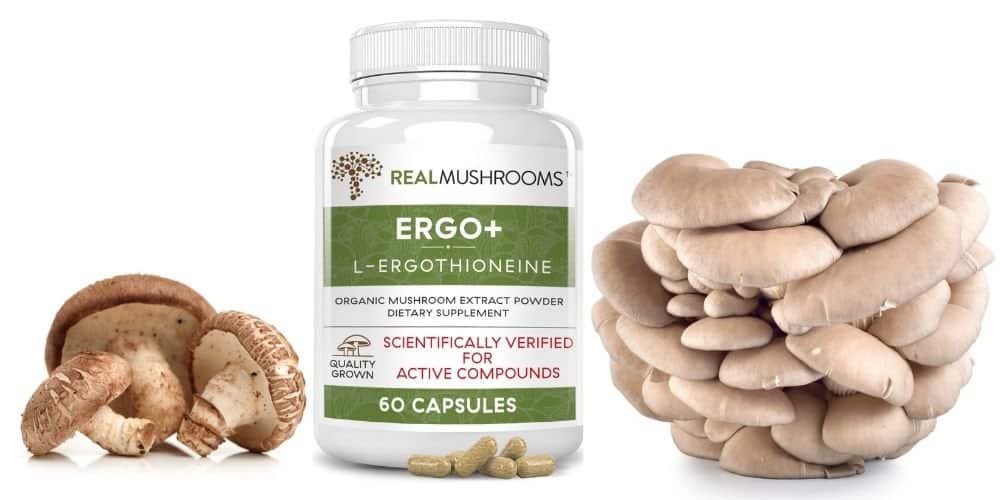
Ergothioneine may not be a household name, but this unique amino acid is generating significant interest in nutrition science and preventive medicine. Found naturally in mushrooms, certain meats, and some beans, ergothioneine represents a fascinating intersection of dietary science and health potential. Let’s explore this remarkable compound and its emerging role in human health.
What is Ergothioneine?
Ergothioneine is a naturally occurring amino acid containing sulfur that was first discovered in 1909 in ergot fungi. Unlike many other antioxidants, it’s not synthesized by humans or animals but is produced by certain fungi and some bacteria. What makes ergothioneine particularly special is its stability and resistance to auto-oxidation, allowing it to maintain its antioxidant properties under various physiological conditions.
Dietary Sources
The richest natural sources of ergothioneine include:
- Mushrooms: Especially king oyster, shiitake, and maitake varieties
- Organ meats: Particularly kidney and liver
- Certain legumes: Including black and red beans
- Some seafood: Notably clams and certain fish
Mushrooms stand out as exceptional sources, with certain varieties containing up to 40 mg per kg of fresh weight.
Biological Function and Health Benefits
What makes ergothioneine fascinating to researchers is its unique biological behavior. The human body has a specific transporter protein (OCTN1) that actively carries ergothioneine into tissues where oxidative stress and inflammation are common. This suggests ergothioneine plays an important protective role.
Research suggests several potential health benefits:
1. Powerful Antioxidant Protection
Ergothioneine appears to be particularly effective at neutralizing hydroxyl radicals and hypochlorous acid, two highly damaging forms of oxidative stress. Unlike some antioxidants that can become pro-oxidants under certain conditions, ergothioneine remains stable.
2. Neuroprotective Properties
Studies indicate ergothioneine may help protect brain cells from oxidative damage. Some researchers have noted lower ergothioneine levels in patients with neurodegenerative conditions, suggesting a potential protective role against cognitive decline.
3. Cardiovascular Support
Preliminary research suggests ergothioneine may help maintain cardiovascular health by protecting against endothelial dysfunction and inflammation—key factors in heart disease.
4. Skin Health
Emerging research is investigating ergothioneine’s potential to protect skin against UV radiation and environmental damage when applied topically.
Research Status
While research on ergothioneine is promising, it remains in relatively early stages. Most studies have been conducted in laboratory settings or animal models, with human clinical trials still limited. However, the unique properties and specific biological transport mechanism for ergothioneine have captured scientific attention.
Is Supplementation Necessary?
Currently, ergothioneine is available as a dietary supplement, though it’s not as common as other antioxidants. Whether supplementation is beneficial remains an open question, particularly given that:
- The optimal intake levels aren’t yet established
- Long-term effects of supplementation aren’t fully understood
- Many people may obtain adequate amounts through diet, particularly if consuming mushrooms regularly
Conclusion
Ergothioneine represents an intriguing chapter in nutritional science—a compound with unique properties that appears specifically preserved by the human body. While more research is needed to fully understand its role and potential benefits, the current evidence suggests ergothioneine may be an important dietary component worth considering.
For those interested in increasing their ergothioneine intake, incorporating a variety of mushrooms into your diet represents the most natural and well-established approach. As research continues to evolve, we may discover even more about this fascinating nutrient and its role in maintaining optimal health.
References:
- Cheah IK, Halliwell B. “Ergothioneine: antioxidant potential, physiological function and role in disease.” Biochimica et Biophysica Acta (BBA) – Molecular Basis of Disease.
- Ey J, et al. “Dietary sources and antioxidant effects of ergothioneine.” Journal of Agricultural and Food Chemistry.
- Halliwell B, et al. “Health promotion by flavonoids, tocopherols, tocotrienols, and other phenols: direct or indirect effects?” Antioxidant or not?” The American Journal of Clinical Nutrition.
Note: Always consult healthcare professionals before making significant changes to your diet or beginning any supplementation regimen.
Written by
Globe Gums Inc
You may also interested in:

Exploring Gellan Gum: A Comprehensive Guide
Gellan gum is a popular food additive increasingly found in a wide variety of products. Known for its gelling, stabilizing, and texturizing properties, gellan gum plays a vital role in
